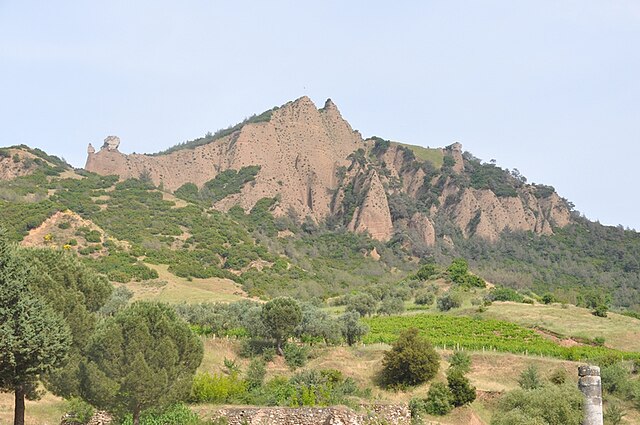The Battle of Thymbra was the decisive battle in the war between Croesus of the Lydian Kingdom and Cyrus the Great of the Achaemenid Empire. Cyrus, after he had pursued Croesus into Lydia after the drawn Battle of Pteria, met the remains of Croesus' partially-disbanded army in battle on the plain north of Sardis in December 547 BC. Croesus' army was about twice as large and had been reinforced with many new men, but Cyrus still utterly defeated it. That proved to be decisive, and after the 14-day Siege of Sardis, the city and possibly its king fell, and Lydia was conquered by the Persians.
Defeat of Croesus at the Battle of Thymbra, 546 BC
The Battle of Thymbra took place below the citadel of Sardis (center), and the Lydians then retreated for the Siege of Sardis (547 BC).
Croesus was the king of Lydia, who reigned from 585 BC until his defeat by the Persian king Cyrus the Great in 547 or 546 BC. According to Herodotus, he reigned 14 years. Croesus was renowned for his wealth; Herodotus and Pausanias noted that his gifts were preserved at Delphi. The fall of Croesus had a profound effect on the Greeks, providing a fixed point in their calendar. "By the fifth century at least", J. A. S. Evans has remarked, "Croesus had become a figure of myth, who stood outside the conventional restraints of chronology."
Depiction of Croesus, Attic red-figure amphora, painted c. 500–490 BC
Gold coin of Croesus, Lydian, around 550 BC, found in what is now modern Turkey
Aesop in front of Croesus
Croesus showing his treasures to Solon. Frans Francken the Younger, 17th century






